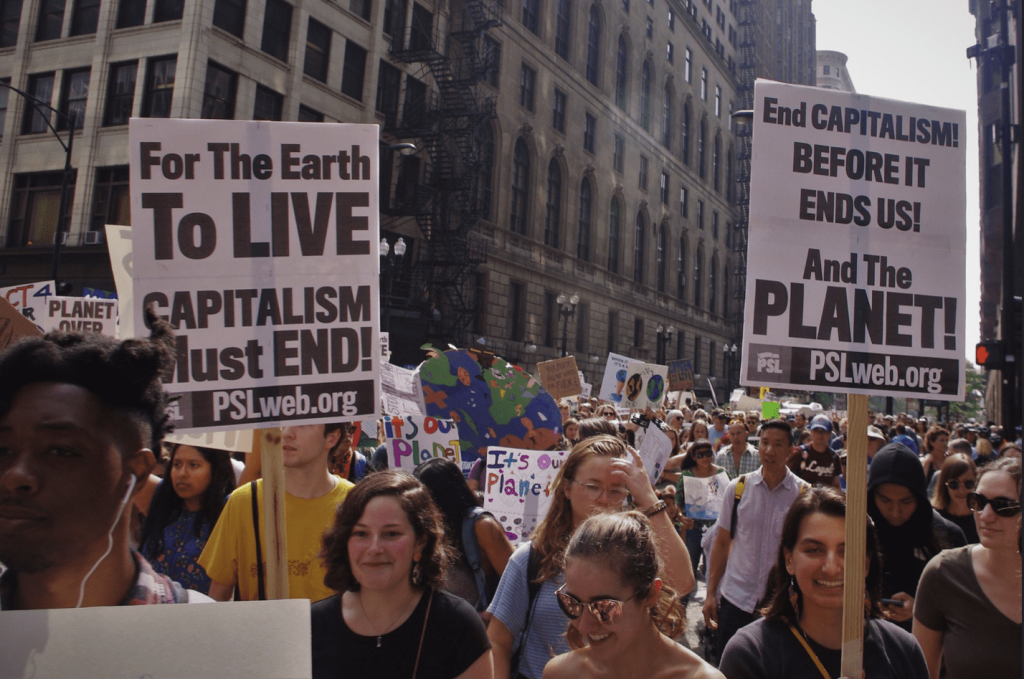The Progenitor of Inequalities – Corporate Personhood vs. Human Beings
CAPITALISM, 13 Feb 2023
Ralph Nader – TRANSCEND Media Service
3 Feb 2023 – The word “inequality” is everywhere in the media. It usually refers either to race, gender, rich vs. poor, or other differences between human beings. Absent from the public debate is the biggest perpetrator of “inequality” against human beings – the corporate entity itself.
Ever since 1886 when a U.S. Supreme Court reporter, in a headnote for the Court’s opinion, wrote that corporations possessed equal rights under the Constitution, judges and corporatist legislators have equipped corporations with an arsenal of inequitable rights. (The Constitution makes no mention whatsoever of “corporation” or “company”).
How is that possible with the 14th Amendment mandating equal protection under the law? Because this central provision for our alleged rule of law didn’t take into account the contrivances of corporate lawyers, corporate judges and corporate-indentured lawmakers.
Corporations that are created by state charters are deemed “artificial persons.” States like Delaware and Nevada have made a revenue business out of chartering corporations under permissive laws that concentrate power at the top of autocratic commercial hierarchies, leaving their shareholder-owners with very few options other than to sell. Since the early 1800s, states have chartered corporations giving their shareholders limited liability. The maximum they can lose is the amount of dollars invested in their company’s stocks or bonds. The modern history of corporate law is now aimed at maximizing the limited liability of the corporation itself.
The following twelve examples of inequality are shocking:
1. The corporate entity protects owners and shareholders from business debts and other liabilities. Yet, individual business owners are not personally shielded from business related debts or liabilities.
2. Bankruptcy laws favor corporations mightily over individuals. Bankrupt corporations can cancel their labor union contracts, are free from lawsuit liabilities against them, and can even get judges to grant retention bonuses for the culpable executives so they can provide parties with their alleged historical memory. Then under Chapter 11 bankruptcy, the company, having shed its liabilities, can reorganize and be back in business. If it is a giant bankrupt company like General Motors was in 2009, its recreation can get many billions of taxpayer dollars because it is considered “too big to fail.” Compare all these privileges with an individual going bankrupt no matter how wealthy he or she may have been. No contest.
3. Under criminal laws, corporations have huge advantages. Unlike most individuals who commit serious crimes, corporations have lawyers who shield them with “no-prosecution” or “deferred prosecution” agreements instead of criminal penalties. Unlike individual criminals, corporations cannot be jailed, and are almost never executed (that is having their charter pulled and put out of business, unless they are small business crooks). Former U.S. Attorney General Eric Holder said the big banks may even be too big to be prosecuted. While the big corporations, having cost the lives of many people and sickened more, continue on their merry profiteering ways. In this category are the large drug, chemical, auto, oil, coal and hospital chains.
4. Wrongfully injured people suing corporations under tort law find corporations can endlessly delay, with their insured or deductible legal expenses. Victims who are desperate for money to pay medical and other bills, cannot deduct their legal expenses and may not have insurance. Corporations can force low settlements because of their inequality of status and power.
5. Unequal taxation is a Niagara of inequality. The top federal tax rate for individuals is 37% and only 21% for corporations, before a plethora of loopholes. Why should an individual businessperson or any individual have to pay 37% and face an economic disadvantage vis-a-vis a competitor that only pays 21%? The baseless response is that there is a rational classification for this unfairness – nonsense.
6. Unlike individuals, corporations can create their own parents – (holding companies) for evasive purposes. They can also create hundreds of children (subsidiaries) to evade all kinds of law enforcement. The tax and non-regulatory haven of the Grand Cayman Islands has thousands of corporations “domiciled” there. One large building – Ugland House – “houses” 12,000 corporations. Real humans would be insufferably cramped if they attempted to quarter themselves with such inorganic efficiencies.
Until the decision last month by the Third Circuit of Appeals, saying no to profitable Johnson & Johnson’s corporate lawyers, corporations could create a subsidiary and put in it all the pending lawsuits by injured consumers, declare the subsidiary bankrupt and then leave the harmed plaintiffs with little recourse. This is called the “Texas two-step” a creation of corporate lawyers.
7. Corporations’ one-sided contracts requiring you to sign or click on, turn you into contract peons. Freedom of contract is gone. Your status is reduced to obeying the harsh impositions by banks, auto dealers, insurance companies, credit card companies, utilities, etc. Try to escape and go to a competitor. No dice. They all have the same restrictions, with minor variations. These long, inscrutable fine-print handcuffs require you to waive your right to go to court for a trial by a jury of your peers.
8. The antitrust laws, being little enforced over the years, have resulted in monopolies or shared monopolies, replete with manipulative powers that make a mockery out of an alleged free marketplace. How’s that for inequality – destroying the right to and benefits from a competitive market?
9. Corporations are given monopoly licenses by the FCC to control 24/7 what we own – the public airwaves. The radio and TV corporations get this bonanza free of charge along with the power to decide who gets on and who doesn’t. No individual could either have such a status or in any way challenge these license renewals made virtually automatic by the corporatized U.S. Federal Communications Commission.
10. Emanating from these inequalities, embedded in corporate-lobbied unequal laws, are the realities of raw economic, political and cultural power that intimidate and coerce mere human mortals. Corporations are able to survive and thrive after horrendous overcharges, crimes and casualties – the opioid and other drug companies, the vast toxic pollution of air, water and food, the crimes of Wall Street and the exploitation of workers’ health and economic well-being. Corporations continue, as they are not human, without feeling the sanctions of social shame, guilt or ostracism. Mere humans have no such inherent escapes.
11. Other derivative political power allows corporations to strategically plan and control the lives of humans with algorithms and monopoly patents. They get away with direct marketing that exploits children and circumvents their parents’ authority, breaking long-held cultural barriers to mass gambling online, and continuing to discriminate against women and minorities, as workers and consumers.
12. The biggest prize of all for the uses of corporate-dominant inequality over real people is the control of the Congress, state legislatures, country boards, city councils, and elections along with the selection of judges. Their assemblage of ever larger entrenched legal and illegal inequalities produces a multiplier effect, achieving deeper inequalities as corporate control over capital, labor, technology and choice of jurisdictions here and abroad intensifies their privileges and immunities.
All these drives for maximum power and control are maturing the corporate state – as Wall Street and Washington merge. President Franklin Delano Roosevelt, in a formal message to Congress in 1938, called the control of government by private power “fascism.” In 1933 Supreme Court Justice Louis Brandeis wrote an opinion warning about big corporations becoming a “Frankenstein monster” in our midst.
So, all you fighters against inequality between people leap into the Big Leagues and confront the biggest progenitors of inequalities of all – giant corporations. Grab hold of the roots if you wish to prevent the bitter fruits. End cruel exploitation provided by these double standards.
_____________________________________________
 Ralph Nader is a US political activist, author, lecturer, and attorney noted for his involvement in consumer protection, environmentalism, and government reform causes. The son of Lebanese immigrants to the United States, Nader attended Princeton University and Harvard Law School.
Ralph Nader is a US political activist, author, lecturer, and attorney noted for his involvement in consumer protection, environmentalism, and government reform causes. The son of Lebanese immigrants to the United States, Nader attended Princeton University and Harvard Law School.
Tags: Capitalism, Corruption, Elites, Finance, Greed, Hunger, Inequality, Post-capitalism, Profits, Right to Food, Super rich, World Order
DISCLAIMER: The statements, views and opinions expressed in pieces republished here are solely those of the authors and do not necessarily represent those of TMS. In accordance with title 17 U.S.C. section 107, this material is distributed without profit to those who have expressed a prior interest in receiving the included information for research and educational purposes. TMS has no affiliation whatsoever with the originator of this article nor is TMS endorsed or sponsored by the originator. “GO TO ORIGINAL” links are provided as a convenience to our readers and allow for verification of authenticity. However, as originating pages are often updated by their originating host sites, the versions posted may not match the versions our readers view when clicking the “GO TO ORIGINAL” links. This site contains copyrighted material the use of which has not always been specifically authorized by the copyright owner. We are making such material available in our efforts to advance understanding of environmental, political, human rights, economic, democracy, scientific, and social justice issues, etc. We believe this constitutes a ‘fair use’ of any such copyrighted material as provided for in section 107 of the US Copyright Law. In accordance with Title 17 U.S.C. Section 107, the material on this site is distributed without profit to those who have expressed a prior interest in receiving the included information for research and educational purposes. For more information go to: http://www.law.cornell.edu/uscode/17/107.shtml. If you wish to use copyrighted material from this site for purposes of your own that go beyond ‘fair use’, you must obtain permission from the copyright owner.
